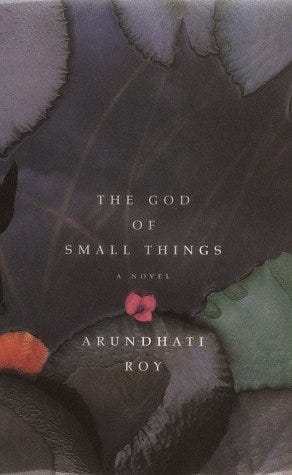Are You A Dreamer Or A Cynic (Why Not Let Your Books Decide?)
What your taste in books reveals about you

What your taste in books reveals about you
Did you know the books you like could tell a lot about your personality?
When it comes to an outlook towards life, there are two kinds of people in the world:
- The people who are genial by heart, who like to live in the moment, who believe that good things come to those who wait. Let’s call them the dreamers.
- The second category of people are the ones who have one eye on the road ahead, and the other on the people around them. They observe and learn, and inherently believe that the world is a bad place out to get you, that no one will come to your rescue if you don’t look out for yourselves. The cynics, if that’s what you’d like to call them.
The Two Types Of Readers
In the literary world too, there are two categories all books can be classified into — light and heavy literature.
‘Light’ books are the ones that lift your heart, the ones that fill you with a warm, fuzzy glow after the last page is turned. Maybe the dreamers appreciate light literature better.
The ‘heavy’ books are the ones that make the reader think and question, that give them new ideas and introduce them to a different perspective towards life — the perfect foil for the cynics.
Heaviness in literature
The ‘heaviness’ in literature comes across as a mirror to the society, to all that needs to be fixed in our world.
These are books that will make you think, will make you question yourself, will make you wonder if the path you took in life was worth it, and if you could go back in time and change certain things, would you?
Reading a ‘heavy’ book will help the reader develop empathy. It will make them sensitive to the sufferings of others. Cynics thrive on such books because it feeds their souls and satisfies their urge to always keep learning more.

An example here is The God of Small Things by Arundhati Roy. I have met many people who have read the book, enjoyed it, and moved on. But then, it takes a cynic to truly appreciate the beauty of the world Roy has created, to feel the pain, the trauma that the author portrays, to understand that the story might be a work of fiction, but the emotions are genuine. They represent the society, that not everything can be viewed through rose-tinted glasses, that some lives are hard. Tragedies happen, and rather than centring our lives around it, we should take it as a lesson and move ahead. After all, Roy didn’t simply write fiction. She must have observed atrocities happening in real life and built her fictional world around them.
Cynics understand that just because we rarely come across the darkness in real life, doesn’t mean it doesn’t exist.
Lightness in literature
While the ‘lightness’ in literature can be uplifting, several of the ‘light’ books will serve as reminders to your younger self when you loved and lived them. Reading them again would take you back to some special place you left a part of your heart in.

I am sure all the bookworms will be transported to the magical world of Hogwarts the moment they leaf through a Harry Potter book. The pages will take them back to a world of whimsical staircases, talking portraits and transparent ghosts that float right through you.
Similarly, open a Famous Five book and you will find yourself back in the middle of an English holiday, complete with bike rides, hikes, scrumptious picnic lunches, and mysteries that will keep you guessing till the end.
The Indian Literature Scenario
The present Indian literary world is filled with fluff and effervescent non sequitur. Pick up any Indian bestseller, and all you will find is romance — be it the likes of Savi Sharma, Durjoy Datta, Sudeep Nagarkar or Nikita Singh — most of the books are romances that are filled with the same tropes.
The romance follows a common trend: a beautiful woman, a not-so-handsome man, and an unlikely love story blooming between the two that always faces similar roadblocks — familial pressure or societal constraints.
These books make for entertaining one-time reads, but you’ll hardly find a character that will stay with you for long.
There are, however, authors who do dabble in ‘heaviness’ — including Amitav Ghosh, Kiran Desai, Rohinton Mistry, and Arundhati Roy herself — but the books they pen have a niche audience — the cynics — and aren’t what you’d call bestsellers.
This skewed ratio is probably because the world is populated with dreamers — people who will find it uncomfortable if a piece of fiction makes them question themselves or face issues which they would rather stay unaware of.
Final Thoughts
Either group of readers can enjoy either category of literature. After all, it depends on what one takes away from the book.
If you are a dreamer who would want to try a ‘heavy’ book, I would recommend George Orwell’s 1984, Haruki Murakami’s Kafka on the Shore, Jhumpa Lahiri’s The Lowland, and Rohinton Mistry’s A Fine Balance.
If you’re a cynic on the lookout for a ‘light’ read, here are a few books that will expand your imagination, entertain you, and will give you characters that will stay with you for life — PG Wodehouse’s Uncle Fred in the Springtime, Douglas Adams’ The Hitchhiker’s Guide to the Galaxy, Jonathan Stroud's The Amulet of Samarkand, and Arthur Sean Greer’s Less.
For book reviews and recommendations, follow me on Goodreads.
